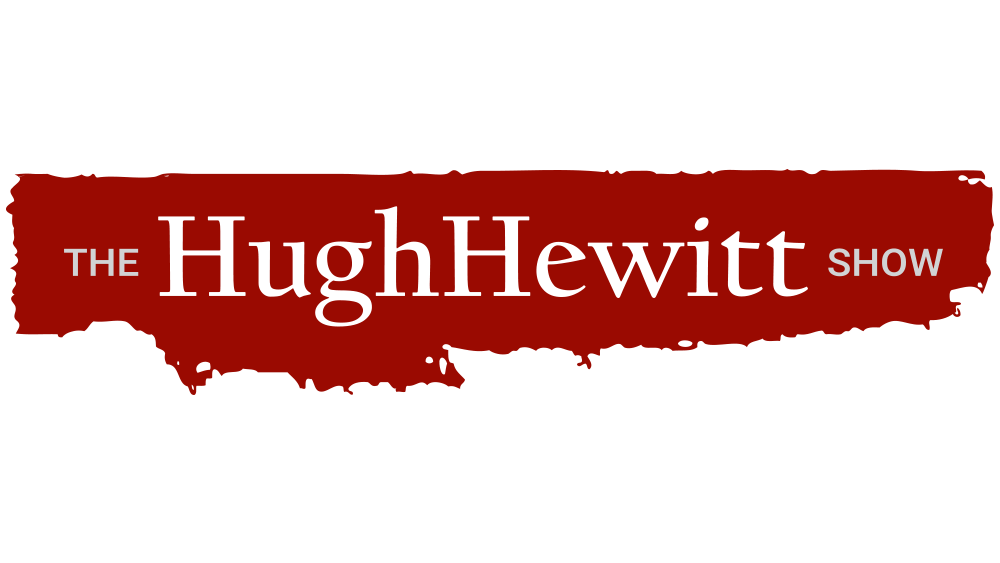
ICYMI: Former U.S. Senator Pat Toomey on The Hugh Hewitt Show: No Bank, No Business Should Have “Government Deciding What Constitutes Your Reputational Risk”
Oct 28, 2025
Former Senate Banking Committee Ranking Member Discusses Lasting Reforms to Prevent Politically Motivated Debanking, Foster a Free and Fair Financial System
In case you missed it, today, AFFM Advisor and former U.S. Senator Pat Toomey joined conservative commentator Hugh Hewitt on his radio show, “The Hugh Hewitt Show,” to discuss the current state of play to guarantee access to banking for all Americans and to protect a free and prosperous financial sector in the United States. Toomey and Hewitt discussed the origins of politically motivated “debanking,” President Trump’s leadership to prevent it from happening in the future and how Congress can support the administration and ensure a free, fair and transparent financial system with lasting reforms.
Highlights from the discussion include:
The Backstory of Government-Driven Debanking
Senator Toomey explained that previous administrations were “quite hostile to certain industries, the gun industry, fossil fuel industries, and somebody concocted a very devious idea, which is, we can’t pass legislation to inhibit or even ban some of these disfavored industries. So instead, what we’ll do is we’ll use regulatory powers, and specifically, the power to regulate financial institutions to put a lot of pressure on banks not to do business with companies in these disfavored industries. We called it Operation Choke Point.”
“I led an effort as the ranking Republican on the Senate Banking Committee to defeat a nominee for fed [Federal Reserve] governor, because this nominee was actively advocating that we use financial regulators to decide where capital should go and where it should not go. Terrible idea, completely inconsistent with the free economy, with a free society, with a representative form of government for decisions like that, if they’re going to be made by government, they should be made by the accountable elected branches.”
Roots of the Problem
“There was an insidious way that [regulators] went about this, which is during the course of reviewing the banks and opining on whether the banks were complying with all of the standards that they’re supposed to be complying with, like their capital is adequate, they have sufficient liquidity, their management is functioning properly, all of those criteria are generally objective, but they put in a very subjective one, which they called reputational risk.”
“Every business has to worry about its reputational risk, but it’s up to the business to decide that. In this case, the regulators were clear to the bank. So, we’re going to give you a bad grade on how you manage your reputational risk if you do business in one of these disfavored categories.”
“[Reputation risk] was the mechanism that they use to achieve the political aim that they were given. And that’s why it’s so important that we eliminate the ability of these regulators to misuse reputational risk as their mechanism for this kind of activity.”
“Regulators should be required to deal with objective reality, quantifiable measures and reputational risk issues should be decided by the firms who are always concerned about their reputations.”
“What no bank, what no firm should have, is the government deciding what constitutes your reputational risk.”
Positive Action from President Trump and his Administration
“The Trump administration has now gone on the offensive here and is taking steps to forbid regulators from abusing their power in this way. But there’s more that needs to be done, because this is a travesty when American people have their own government denying them banking accounts.”
“The executive order is an excellent first step, because the executive order applies to the folks who are in the agencies under this administration. So that’s great, but as you alluded to at the end of this administration, another administration could come in and reverse the executive order. So absolutely we need statutory legislation.”
What Congress Can Do to Support the President, Enact Lasting Reform
“Senator Tim Scott, the chairman of the Banking Committee, has introduced legislation. It’s called the FIRM act, and what it does is it simply forbids any from considering reputational risk in their evaluation of the banks they regulate, they can continue and then they must continue to evaluate based on the objective criteria like capitalization and liquidity and system security and things like that. But they can’t use these amorphous, undefined, flexible terms that allow them to just have unlimited control of the banks.”
In addition to the FIRM Act, Senator Toomey explained in a recent statement that policymakers can restore lasting balance and fairness in the American financial system by implementing “a national fair access standard that would forbid banks from denying services to people or businesses based on the political affiliation or views of those people or business owners,” and by “updating archaic laws and regulations, including current Anti-Money Laundering and Know-Your-Customer rules.”
One proposed update to these outdated laws is the “Streamlining Transaction Reporting and Ensuring Anti-Money Laundering Improvements for a New Era” (STREAMLINE) Act introduced by U.S. Senate Committee on Banking Chairman Tim Scott (R-SC) along with Senators Kennedy (R-LA), Crapo (R-ID), Rounds (R-SD), Hagerty (R-TN), Lummis (R-WY), Britt (R-AL), Ricketts (R-NE), and Moreno (R-OH) last week. The STREAMLINE Act would modernize the Bank Secrecy Act (BSA) and update the reporting thresholds for currency transaction reports (CTRs) and suspicious activity reports (SARs). Read more on the STREAMLINE Act here.
Listen to Sen. Toomey’s full interview here, and access his past op-eds on the topic of ending government-driven debanking in The Hill and Newsweek as well as an interview on the Banking with Interest.

